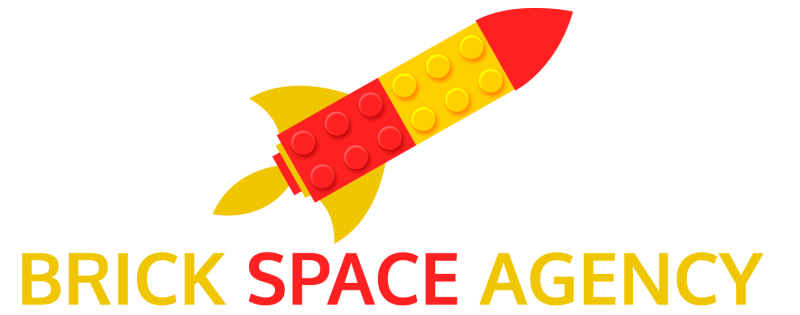The mission of the Brick Space Agency is to showcase all the amazing LEGO space models and their creators. Discover, build, and share your own fleet of rockets, launch vehicles, spacecraft, and space stations!

Juno I
Four stage rocket derived from the Jupiter-C sounding rocket. After the "Sputnik Crisis" and the failure of the Vanguard program, a Juno I rocket was used to launch America's first satellite, Explorer 1.

Atlas 10-D “Big Joe 1”
First launch of the Mercury program. Launched a boilerplate Mercury capsule to test the ablative heat shield, afterbody heating, and reentry dynamics.

A-4 / V-2 Rocket with Support and Supply Vehicles
The Aggregat 4 (A-4), later renamed the V-2 for Vengeance Weapon 2, was the world's first long range missile and the first to pass the Karman line reaching 'space'. Much of the development team went on to help develop rocket programs for both...

Astrovan Apollo Era
Transport for Apollo astronauts to launchpad. Modified Cortez motorhome.

Mercury-Redstone Launch Vehicle
America's first crewed suborbital launch vehicle. Member of the Redstone rocket family derived from the U.S. Army's Redstone missile and the Jupiter-C LV. Used for six suborbital Mercury flights carrying astronauts Alan Shepard and Gus Grissom.

X-15
American manned spaceplane used for hypersonic research. Conducted tests for ballistic flight, winged reentry, and gliding recovery. The X-15 was intended to evolve to a manned orbital spacecraft until the urgent need for the Mercury and Gemini programs surfaced. Research from the X-15 eventually led to the...

Juno II
Four stage rocket derived from the Jupiter missile and using MGM-29 Sergeant solid rocket motors for the upper stages. Launched Pioneer 3 (failure) and Pioneer 4 which became the first American lunar probe.

Atlas A SM-65A
Modification of Kevin Huang's model First full scale prototype of the Atlas missile and progenitor of the Atlas family of rockets.

Titan IIIA
Titan III configuration launched four times to test the Titan transtage and later incorporated as the core stage for the Titan IIIC.

Little Joe II
American rocket developed to test the Apollo spacecraft Launch Escape System and the Command Module parachute recovery system in abort mode. Smallest of the four launch vehicles used in the Apollo program.

Titan IIIC with MOL
Titan IIIC modified to carry a boilerplate mockup of the Manned Orbiting Laboratory.

Atlas LV3 Agena-D
Standardized Atlas plus Agena D used for a variety of NASA and Air Force programs, including Ranger, Mariner, Midas, and Gambit.

Titan II GLV (Gemini Launch Vehicle)
Titan II missile derived launch vehicle used to launch twelve Gemini missions for NASA.

NASA M113 Armored Rescue Vehicle
NASA modified Army M113s used as armored rescue vehicles.


